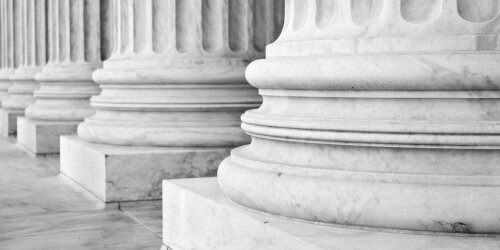Best Accounting & Auditing Lawyers in New York City
Share your needs with us, get contacted by law firms.
Free. Takes 2 min.
List of the best lawyers in New York City, United States
1. About Accounting & Auditing Law in New York City, United States
Accounting and auditing law in New York City blends federal regulatory frameworks with New York State licensing rules and city and state enforcement practices. In practice, public company audits in NYC must comply with federal and national standards, while New York governs who may practice as a CPA and how professionals are disciplined for misconduct. Accountants and attorneys in this field routinely interact with multiple authorities, including the Securities and Exchange Commission, the Public Company Accounting Oversight Board, and the New York State Education Department.
For many engagements, clients rely on the guidance of an attorney who understands both accounting concepts and the regulatory landscape. A NYC accountant may also work closely with a tax professional or auditor to ensure compliance under the applicable rules. The result is a coordinated approach that reduces risk and improves financial reporting quality for clients, investors, and regulators alike.
Key functions in this area include setting auditing standards, enforcing licensure for CPAs, and supervising internal controls for public companies.
Public Company Accounting Oversight Board (PCAOB) oversees audits of public companies and inspects registered firms, shaping auditing practice in the United States. The Sarbanes-Oxley Act of 2002 established major internal control and governance requirements for publicly traded companies. On the licensing side, New York State Education Department regulates CPA licensure and discipline in New York.
In New York City specifically, financial centers, big law firms, and multinational corporations heighten the need for precise compliance with these standards. Practitioners should stay attuned to updates from federal and state authorities to navigate changing requirements effectively.
2. Why You May Need a Lawyer
Below are concrete, NYC-specific scenarios where consulting an accounting and auditing attorney is prudent. Each example reflects real-world conditions you may encounter in and around New York City.
- Facing an internal controls deficiency notice for a NYC public company - If your firm is under a SOX Section 404 assessment and the audit committee receives a management letter citing material weaknesses, a specialized attorney can help coordinate remedial plans, document control changes, and communicate with regulators and the board.
- Responding to a disciplinary proceeding with the NYS Board for Public Accountancy - If the New York State Education Department alleges CPA misconduct or license issues, you need counsel to prepare defenses, gather evidence, and navigate potential sanctions or license suspension procedures.
- Managing a cross-border audit engagement in NYC - When a NYC client is audited under PCAOB standards but has subsidiaries abroad, you may need counsel to address multi-jurisdictional accounting issues, audit firm independence questions, and cross-border reporting requirements.
- Dealing with a NYS Tax Audit affecting financial statements - If the NY State Department of Taxation and Finance challenges accounting methods used for state tax purposes, a lawyer can coordinate with tax professionals to defend the positions and adjust financial reporting where appropriate.
- Facing an accounting malpractice claim or professional liability suit in NYC - A breach of professional duty or alleged misstatements in financial reporting may require a defense strategy, expert testimony, and negotiation of settlements or court filings with experience in accounting law.
- Negotiating auditor independence or engagement letter disputes - If a client or auditor disputes terms, fees, or scope under a public company engagement, a legal counsel can draft amendments, resolve conflicts of interest, and ensure regulatory compliance.
3. Local Laws Overview
New York City relies on a mix of federal law, national standards, and state licensing rules to govern accounting and auditing practice. The most relevant named rules and their general implications are summarized here. These are the core frameworks NYC practitioners should know when advising clients or representing them in disputes.
- Sarbanes-Oxley Act of 2002 (SOX) - A federal statute imposing strong governance and internal control requirements on publicly traded companies and their auditors. SOX Section 404 requires management and auditors to assess and attest to the effectiveness of internal controls over financial reporting. The act has shaped corporate accountability nationwide, including in New York City.
- Public Company Accounting Oversight Board (PCAOB) Auditing Standards - The PCAOB issues auditing standards and conducts inspections of registered audit firms. NYC-based public companies and large private entities seeking public market access must follow these standards and respond to PCAOB inspection findings.
- New York State Education Law governing Public Accountancy - This statutory framework governs CPA licensure, professional conduct, and disciplinary processes administered by the New York State Education Department, Office of the Professions. It is the primary state-level control on who can practice as a CPA in New York.
Recent developments in this area include ongoing updates to auditing standards and enforcement practices at the federal level, as well as periodic refinements to CPA licensure requirements and continuing education at the state level. For authoritative details, consult the entities below.
NYC practitioners must align with both national auditing standards and state licensing rules to maintain credibility and avoid penalties.
Sarbanes-Oxley Act of 2002 provides the overarching federal framework for internal controls and auditor independence. PCAOB Auditing Standards govern audits of public companies. New York State Education Department - CPA Licensing outlines New York requirements for CPAs.
4. Frequently Asked Questions
What is a CPA and when do I need one in NYC?
A CPA is a licensed professional authorized to perform audits and provide accounting services in New York. You generally need a CPA for statutory audits, complex financial reporting, or tax-related advisory when required by regulators or lenders in New York City.
How do I verify a NYC CPA license is current?
Check the NYS Education Department’s online license verification for CPAs, which lists current status, renewal dates, and disciplinary actions.
What is the difference between an attorney and a solicitor in this context?
In the United States, the term attorney or lawyer is typical. In New York City, use attorney or legal counsel for formal matters, including regulatory filings and litigation. A solicitor is more commonly used in other jurisdictions.
How much does hiring a NYC accounting attorney typically cost?
Fees vary by complexity and experience. Expect hourly rates from a few hundred dollars to over $600, depending on the firm and the matter's scope. Fixed fees may apply for discrete tasks like document review.
Do I need a NYC-based attorney for a PCAOB-related matter?
Yes, local familiarity helps with regulatory expectations, local counsel coordination, and practical scheduling with NYC regulators and firms.
Is SOX applicable to private companies in NYC?
SOX primarily targets public companies. Private firms may face related governance and internal control considerations in transactions or financing, but not the same mandatory requirements as public companies.
When do internal controls audits occur for a NYC public company?
SOX 404 engagements typically occur annually, aligned with the company’s fiscal year. The audit firm reports control deficiencies to management and the audit committee.
What should I do if I receive a NYSED inquiry about a CPA’s conduct?
Consult a lawyer immediately to prepare the response, collect documentation, and represent you in communications with the Office of the Professions and any subsequent proceedings.
How long does a NYS CPA license renewal or disciplinary process take?
Renewals are annual or biennial depending on the licence cycle. Disciplinary processes vary; simple cases may take months, while contested actions can extend over a year or more.
Can a private company switch auditors mid-cycle in NYC?
Yes, but the switch requires careful planning, communication with the audit committee, and compliance with independence and rotation requirements where applicable.
What is the best way to prepare for a NYC tax audit involving financial statements?
Engage a CPA and an attorney to coordinate, maintain documentation, respond to notices promptly, and review state tax positions for accuracy and compliance.
Do I need to consider PCAOB standards if my company is not publicly traded but operates in NYC?
Non-public entities may be affected by general auditing best practices and state or bank requirements. If you anticipate going public or filing with the SEC, PCAOB standards will be relevant.
5. Additional Resources
These official resources provide authoritative guidance on accounting and auditing matters in New York City and beyond.
- New York State Education Department - Office of the Professions - CPA Licensing - Oversees CPA licensure in New York and handles disciplinary matters. op.nysed.gov/prof/cpa
- Public Company Accounting Oversight Board (PCAOB) - Sets auditing standards and conducts inspections of registered audit firms. pcaob.org
- Securities and Exchange Commission (SEC) - Federal regulator overseeing securities markets, financial reporting, and corporate governance. sec.gov
6. Next Steps
- Define your objective - Identify whether you need licensing assistance, regulatory compliance guidance, or representation in a dispute. (1-2 days)
- Gather documents - Collect licenses, engagement letters, audit reports, notices from NYSED or regulators, and key contracts. (1 week)
- Consult a NYC accounting and auditing attorney - Schedule an initial consultation to assess risk, strategy, and timeline. (2-4 weeks depending on availability)
- Choose your legal team - Compare experience with CPA licensing, PCAOB matters, and NYS disciplinary procedures. Obtain a written engagement letter with fees. (1-2 weeks)
- Develop a plan and timeline - Create a step-by-step plan for regulatory filings, remediation steps, or litigation milestones. (1-3 weeks)
- Implement the plan - Execute procedures, file required documents, and respond to regulator inquiries as directed by counsel. (2-12 weeks, depending on the matter)
- Review and adjust - Reassess outcomes with your attorney after major milestones and update your compliance program as needed. (Ongoing)
Lawzana helps you find the best lawyers and law firms in New York City through a curated and pre-screened list of qualified legal professionals. Our platform offers rankings and detailed profiles of attorneys and law firms, allowing you to compare based on practice areas, including Accounting & Auditing, experience, and client feedback.
Each profile includes a description of the firm's areas of practice, client reviews, team members and partners, year of establishment, spoken languages, office locations, contact information, social media presence, and any published articles or resources. Most firms on our platform speak English and are experienced in both local and international legal matters.
Get a quote from top-rated law firms in New York City, United States — quickly, securely, and without unnecessary hassle.
Disclaimer:
The information provided on this page is for general informational purposes only and does not constitute legal advice. While we strive to ensure the accuracy and relevance of the content, legal information may change over time, and interpretations of the law can vary. You should always consult with a qualified legal professional for advice specific to your situation.
We disclaim all liability for actions taken or not taken based on the content of this page. If you believe any information is incorrect or outdated, please contact us, and we will review and update it where appropriate.












